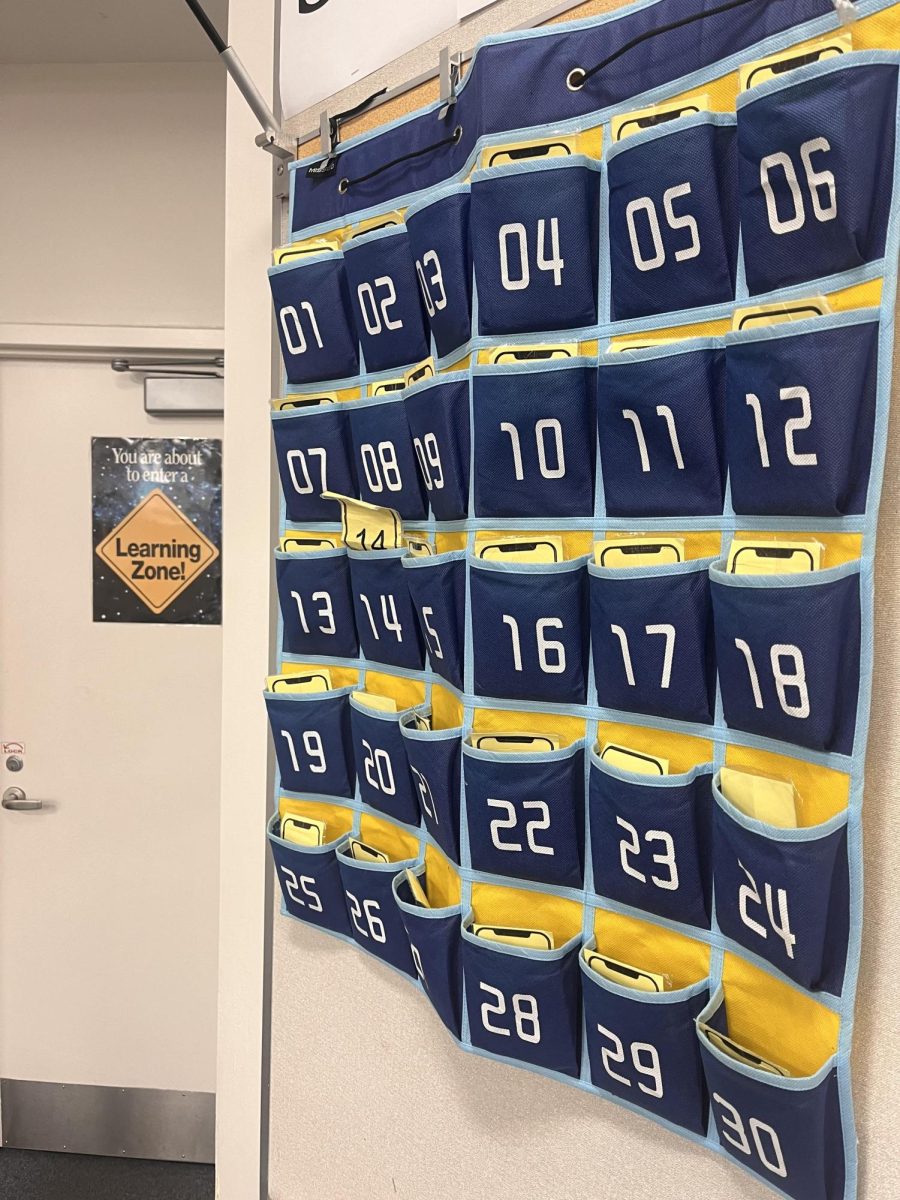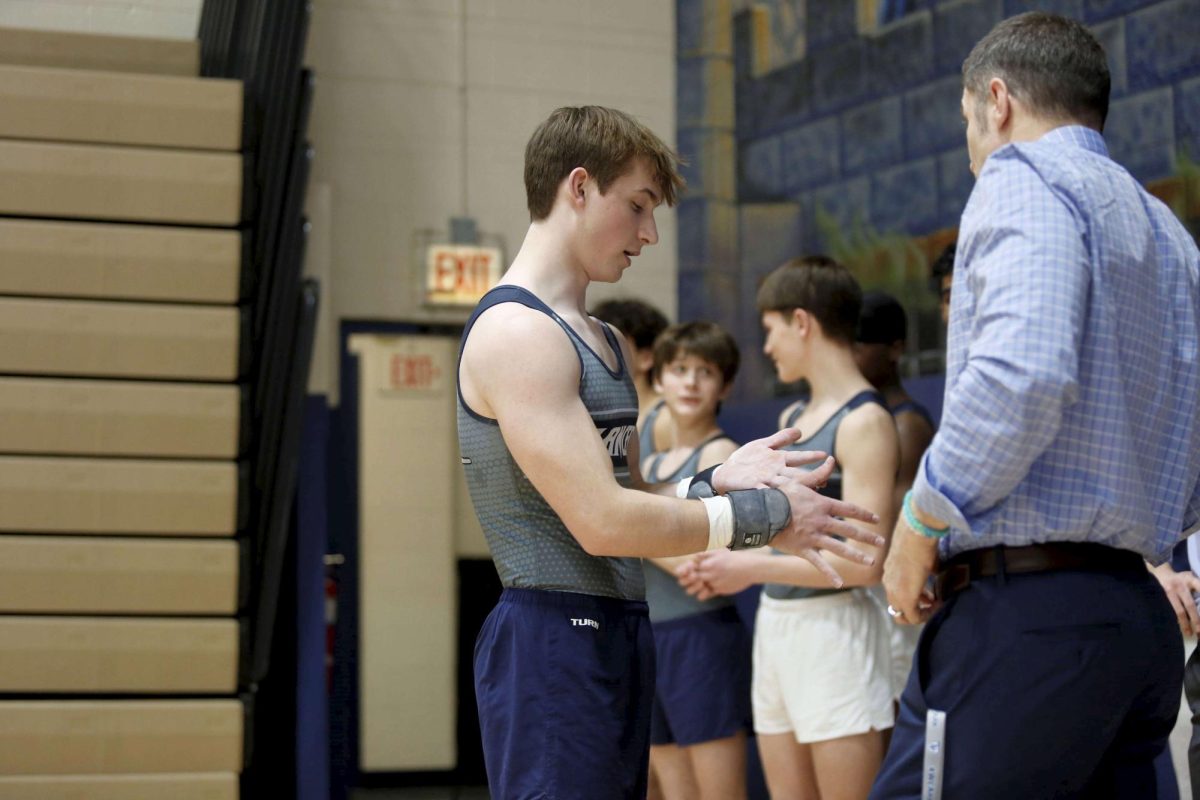Beginning the 2024-25 school year, upon arriving at their desks, students were asked to put their phones up in a “caddy” and told it would be a school-wide policy and requirement. This widely discussed and debated topic of “the cell phone policy” has taken over the halls of Lake Park. Depending on one’s stance, the issue is either loved or hated with no inbetween.
For most students, the idea of being away from their phone is too insufferable. Many students argue that schools do not have the right to seize their property. Students also claim that, prior to the policy and now, they were and are able to control their actions and dismiss their phones; they argue that there is no need for such strict enforcement. From this point of view, students argue that we should have the option to either utilize our class time efficiently, or suffer the consequences and waste time distracted by our own devices.
The drudge and resentment from placing a device in the caddy every period, every day, has led to students looking for ways to work around the policy, such as placing cell phone cases and fake phones in the caddy and using Apple watches or personal tablets and laptops at their desk to more freely connect to the internet, forcing teachers to still manage technology distractions.
One clever way for agitated students to argue for an equal solution is to also have the teacher put their phone with the students’ during the 48-minute class period to understand what it is like for anyone to be required to be separated from their primary communication device for an extended period of time.
From the opposite standpoint, however, teachers (and students, too) also make a strong and appealing case. As anyone with a phone could attest to, the various notifications on our phones are enticing and lure our attention even for the slightest moment. Go ahead and take a look at your phone now; wouldn’t you want to respond to that text from your mom?
In his The Morning newsletter in the New York Times on September 6, 2024, David Leonhardt cited surveys in which “…both teenagers and adults express deep anxiety about their own phone use. By many measures, American society has become angrier, more polarized, and less healthy during the same period that smartphones have revolutionized daily life.”
This prioritization of students’ well-being, according to West Campus Principal Dr. Alexia Ellett, is a main cause for the new policy.
“I love it. The new policy creates a space for mental engagement where students are able to focus better,” Dr. Ellett said. “While they may not openly vocalize this, plenty of students like it better to focus, engage, and read more in the school day. It may not feel popular, but it is what is best, and we’ve received a lot of praise from parents and positive comments in parents’ social media groups.”
A vibrating personal device in a students’ pocket or on a desk, even if facedown, is an intrusive distraction for that student and their classmates, especially in a 48-minute class period. Many teachers have often had to stop class in order to address a phone that is not silenced, or repeating directions because a student was not paying attention. A phone robs a student of the ability to provide their full and undivided attention in class which is vital to the ability to learn in all classes. Even if a student only takes a second to peer at their phone under a desk or through a backpack, it is inevitable that they will want to go back in a few minutes even if it is just to take a look “for a second.”
The age of the cell phone has allowed for humans to connect with one another in ways unimaginable in a previous life. However, this blessing can also be a curse in ways that it could be distracting for both teachers and students in their communal learning environment. Although the new phone policy may not be the most favored among students, it has its benefits in the fact that it keeps students from the temptation of their phone and increases their presence, attention, and engagement in their classroom environment.
The age of digital technology, cell phones, and social media has become a significant part of all of our lives and having conversations like these helps us consider the impacts, both positive and negative, that personal devices have on our presence and environments.
Categories:
Our new cell phone policy promotes presence in class
Perspective Editorial Board
•
October 18, 2024
0
Donate to The Lake Park Perspective
Your donation will support the student journalists of Lake Park High School. Your contribution will allow us to purchase equipment and cover our annual website hosting costs.
More to Discover













